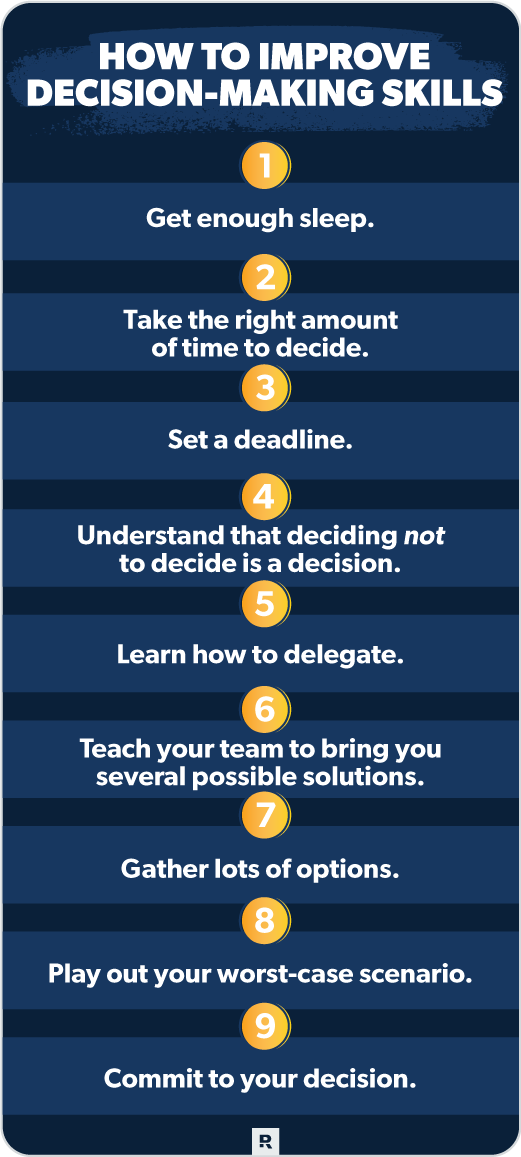Thoughtful Decisions: Unleashing the Power of Mindful Selection

In a universe brimming with options, the ability to make thoughtful determinations has never been greater essential. Regardless of whether in https://peterashbysmith.com/how-a-coffee-shop-line-taught-me-effective-decision-making/ , careers, or everyday engagements, the quality of our determinations determines our experiences and outcomes. Ranging from choosing which to eat for dinner to making pivotal career moves, the craft of effective decision-making can significantly affect our paths. Nevertheless, many find themselves overwhelmed, often times falling into traps that result to bad choices or endless cycles of uncertainty.

Honing decision-making skills entails greater than just knowing what option appears optimal at the moment; it requires a thoughtful approach that harmonizes gut feeling, logic, and emotional intelligence. With various techniques to utilize, ranging from frameworks that guide our thinking to daily habits that strengthen our skills, everyone can learn to make wise decisions assuredly, even under duress. In this exploration of intentional choice, we will reveal strategies that allow us to navigate the complexities of decision-making, allowing to ensure our choices conform with our values and goals.
Strategies for Wise Decision-Making
Formulating optimal decisions necessitates a mixture of structured approaches and instinctive insights. One proven strategy is the use of decision-making systems such as the pros and cons list. This method encourages you to systematically analyze choices by factoring in both the positive and detrimental aspects of all choice. Additionally, identifying the factors that matter most significantly to you can help clarify what is genuinely essential, lessening ambiguity and streamlining the decision-making process more straightforward.
A further important technique is to practice aware practices. By taking a moment to stop and reflect before making a decision, you can gain clarity of thought. This mindfulness assists to mitigate decision fatigue, empowering you to tackle each option with a fresh mindset. It also allows you to manage emotional feelings, ensuring that you are not moved by fleeting feelings or external influences but rather on rational analysis.
Mastering to harmonize intuition with logical reasoning is vital for smart decision-making. Relying on your gut can lead to rapid, efficient choices, especially in known situations, but it is also important to back those instincts with data whenever feasible. By merging these aspects, you create a holistic decision-making process that is concurrently rapid and grounded in evidence, leading to better outcomes in in personal and professional domains.
Comprehending the Psychological Aspects of Decision-Making
The mental processes behind decision-making involves understanding how our minds interpret information and evaluate options. Cognitive distortions often exert a significant role in our decisions, steering us in the direction of certain inclinations unconsciously. For instance, confirmation bias can result in individuals to prefer information that reinforces their existing beliefs while ignoring contrary evidence. Identifying these cognitive biases is important in honing decision-making skills and aiming for more rational outcomes.
Feelings also significantly influence the choice-making process. While some may view emotions as negative, they can give valuable perspectives into our likes and principles. The ability to understand and manage emotions empowers individuals to control their emotions and respond to them appropriately, paving the way for more considerate choices. This interaction between emotion and reason illustrates the nuances of human behavior and highlights the need for a balanced method when deciding.
Moreover, our previous experiences shape how we determine choices in the current moment. Gaining insight from previous choices, whether positive or negative, allows for development and improved future choices abilities. By reflecting on what succeeded and what didn’t, individuals can gain a clearer grasp of their decision-making patterns and more effectively manage future decisions. This ongoing cycle enhances one's capacity to make informed and assured choices in varying situations.
Boosting Choices Skills
Improving decision-making abilities requires intentional practice as well as a dedication to grasping the multiple elements that influence our decisions. A effective method is to establish a decision-making structure that fits individual or organizational requirements. This includes defining the criteria for making decisions, evaluating the pros and cons, as well as considering short and long-term consequences. Utilizing a systematic approach enables clearer reasoning and assists avoiding impulsive choices influenced by feelings or pressure.
Another crucial aspect of enhancing decision-making lies in the ability to control emotions and intuition. Emotional awareness plays a significant role here, as being aware of one's feelings can lead to better choices. Finding a balance between gut feelings and data-driven analysis enables one to utilize both intuition and logic efficiently. Engaging in mindfulness can also aid to making smarter decisions by promoting mental clarity and reducing the noise that often clouds decision-making.
In conclusion, cultivating practices that improve decision-making are essential for sustained success. Participating in daily reflections on past choices can cultivate learning from experiences, helping to avoid the same mistakes. Additionally, actively seeking feedback from peers can provide new viewpoints and assist in refining decision-making skills. Fostering an environment where honest discussions and varied opinions are welcomed can lead to more informed choices, ultimately enhancing self-assurance and effectiveness in decision-making across different aspects of life.
